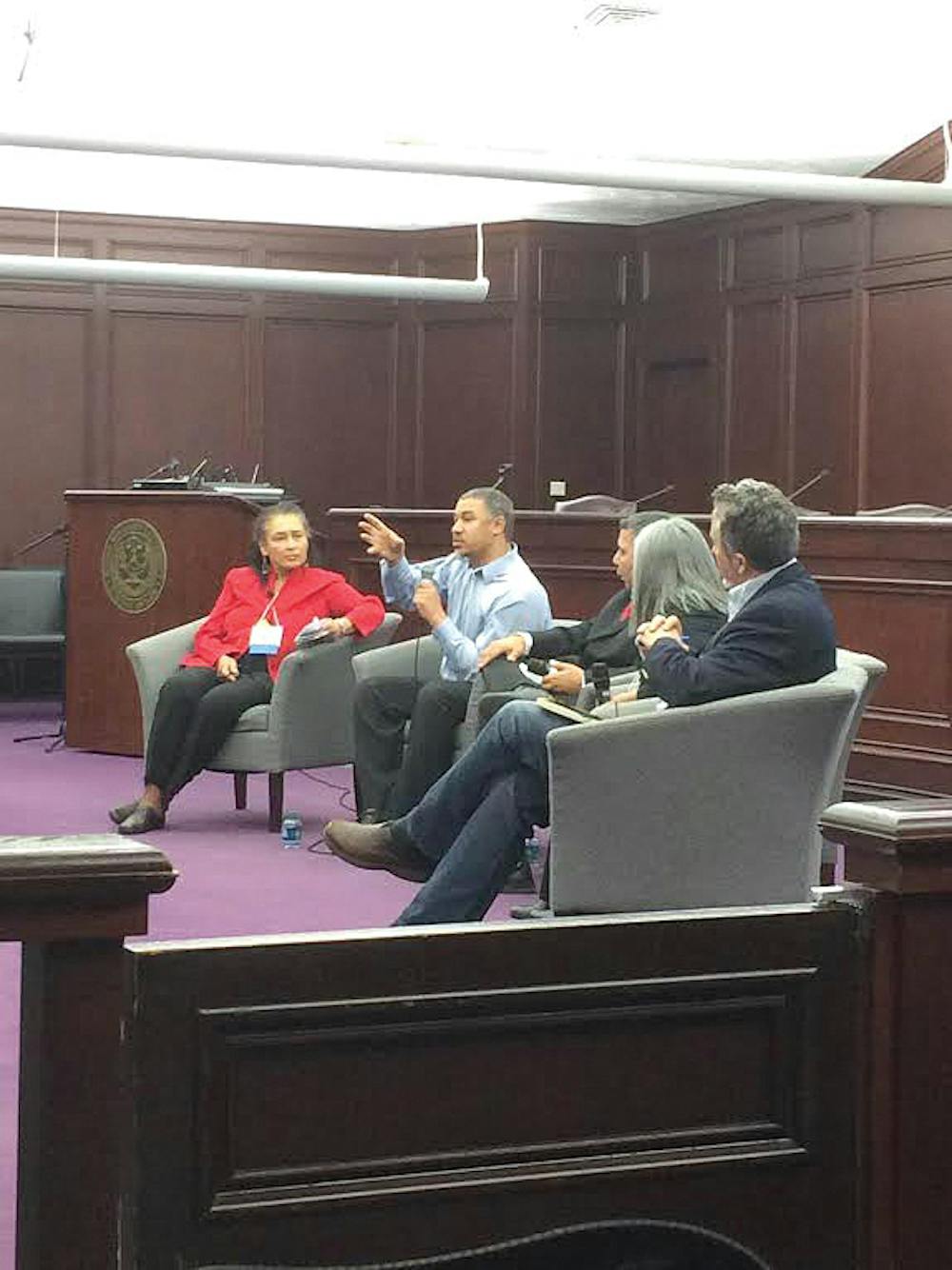More than 300 law enforcement officials, politicians, students and community activists confronted the costs and racial disparities of mass incarceration and probation in Rhode Island— and the nation as a whole — at a conference March 27 entitled “Sounding the Alarm on Mass Incarceration: Moving Beyond the Problem and Toward Solutions.” The day-long event, held at Roger Williams University, also drew Rhode Island Supreme Court justices and Providence Mayor Jorge Elorza.
“I am blown away by the diversity of people in the room,” said Marc Mauer, a national expert on the racial implications of mass incarceration, who presented at the conference. An event bringing together all of the different constituents in one state is “very unusual,” he said, adding that collaboration is the only way to change policy.
Bryan Stevenson, a public interest lawyer famous for his TED talk about the costs of mass incarceration, gave the conference’s opening speech. He shared personal stories about his struggles as a lawyer in the United States “surrounded by a broken justice system and broken people.”
Jordan Seaberry, a student at Roger Williams, said he was particularly struck by a statement Stevenson made: “the opposite of poverty is not wealth, but justice.”
In his presentation, Mauer traced back U.S. policies that contributed to the rapid rise of imprisoned Americans starting in the early 1970s, such as the war on drugs and the establishment of minimum sentences. These measures caused the prison population to soar from about 200,000 people in the early 1970s to 2.3 million people in 2013, he added.
Mauer also cited the statistic that one in every three black adult males born in this country and one in every six Latino adult males can expect to go to prison, compared to one in every 17 white adult males.
“When Mr. Mauer released his report in 1995 on racial disparity in the criminal justice system, the New York Times stated in an editorial that the report ‘should set off alarm bells from the White House to city halls.’ Why do we have to ‘sound the alarm,’ as the conference’s title suggests, two decades later?” a Roger Williams student said when she introduced Mauer.
In the afternoon, Caitlin O’Connor, principal research technician at the Rhode Island Department of Corrections, shifted the focus to Rhode Island as she presented the department’s report on mass incarceration and probation in the state.
Though Rhode Island has a relatively low rate of incarceration, it has one of the top-five highest rates of people on probation and parole in the country, O’Connor said. One in every six black adult males in the state is under probation and parole supervision, compared to one in every 14 Hispanic males and one in every 34 white males, she said.
“Terms of probation can be years, and even decades in many cases, which can be very counterproductive,” Mauer told The Herald, adding that if most people on probation do not reoffend within the first year, they are extremely unlikely to reoffend at all. “To keep them on probation for five, ten, fifteen years, it’s just something hanging over their heads,” he said.
Government officials, lawyers and police officers grappled with the issues raised in the report during the conference’s closing panel discussion. Rhode Island Public Defender Mary McElroy was one of the most outspoken panelists, accusing other politicians in the room of skirting around the issues.
“We overuse incarceration and mass probation in this state. It doesn’t matter whether we are better than other states,” McElroy said. “When we go to the courtroom on Monday, are we going to keep doing things the way we always have?”
Judge Judith Savage, the conference organizer, acknowledged the distance between rhetoric and action in her closing remarks. “We have established proximity today, and proximity is what changes people’s lives,” she said.





